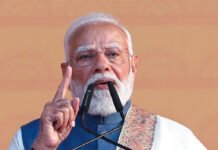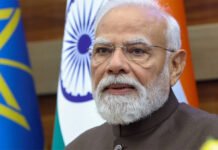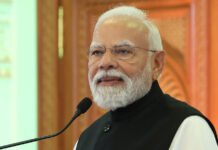As India eagerly anticipates the unveiling of the Union Budget 2025-26, all eyes are on the developments leading up to this crucial economic event. Prime Minister Narendra Modi is set to engage in significant discussions with economists and industry experts ahead of the budget, reflecting the government’s commitment to fostering an inclusive and growth-oriented financial roadmap.
PM Modi’s Strategic Consultations with Experts
In preparation for the Union Budget, Prime Minister Modi will meet with a panel of economists and specialists from diverse sectors. This crucial dialogue, coordinated by the NITI Aayog, is aimed at gathering insights on pivotal areas such as:
- Economic growth acceleration
- Infrastructure development
- Sustainability and green initiatives
- Social welfare programs
NITI Aayog Vice Chairman Suman Bery and other members will play a pivotal role in these discussions, ensuring the inclusion of innovative solutions to address India’s evolving challenges. These meetings signify a collaborative approach to aligning budgetary policies with long-term economic objectives.
Upcoming Budget Presentation Date Announced
The Union Budget for 2025-26 will be presented by Finance Minister Nirmala Sitharaman on February 1, 2025. Marking a significant event in India’s financial calendar, the presentation will provide a comprehensive overview of the government’s fiscal policies and allocations for the upcoming financial year. The event is highly anticipated, not only by policymakers and industry leaders but also by common citizens keen to understand how the government plans to manage pressing economic issues.
Pre-Budget Consultation with States
Finance Minister Nirmala Sitharaman recently chaired a pre-budget consultation with finance ministers from various states and union territories. This meeting, held on December 20, 2024, focused on understanding the fiscal challenges faced by states and discussing measures for cooperative federalism.
Key Demands Raised by States
- Special Financial Packages
Several financially stressed states, including Punjab and Kerala, have requested special assistance to manage their fiscal deficits. - 50-Year Interest-Free Loans
A recurring demand from state finance ministers has been an increase in allocations for 50-year interest-free loans, aimed at boosting long-term infrastructure and capital expenditure projects. - Land Acquisition and Capital Financing
States have also urged the central government to bear a larger share of the costs associated with land acquisition and financing of major infrastructure projects.
Economic Priorities of the Union Budget 2025-26
The Union Budget 2025-26 is expected to focus on several critical areas that directly impact India’s economic trajectory. Below are some of the priorities likely to dominate the discussions:
1. Infrastructure Development and Urbanization
The government is expected to announce significant investments in smart cities, highways, and public transportation. Strengthening urban infrastructure to accommodate the growing urban population remains a key focus.
2. Financial Support for Green Initiatives
With India’s commitment to achieving net-zero emissions by 2070, the budget may include increased allocations for renewable energy projects, electric vehicle subsidies, and sustainable development initiatives.
3. Boosting Agricultural Growth
Agriculture continues to be the backbone of India’s economy. The budget is likely to prioritize:
- Enhancing irrigation facilities
- Introducing new subsidy programs for fertilizers and seeds
- Promoting technology adoption in farming
4. MSME Sector Revival
Small and medium enterprises (MSMEs), which were severely impacted by the pandemic, are likely to receive targeted relief measures. This could include easier access to credit and tax incentives to stimulate business growth.
5. Healthcare and Education
The pandemic has underscored the importance of resilient healthcare infrastructure. We anticipate a significant boost to healthcare spending, coupled with investments in digital education and skill development initiatives.
Impact on Stock Markets
In an unusual but welcome move, the Bombay Stock Exchange (BSE) and National Stock Exchange (NSE) will remain open on Saturday, February 1, 2025, allowing traders to react in real-time to the budget announcements. Trading will follow regular hours from 9:15 AM to 3:30 PM.
This decision reflects the increasing significance of budget announcements in influencing market dynamics. Market analysts predict heightened volatility, particularly in sectors like banking, infrastructure, and energy.
The Significance of Stakeholder Consultations
The pre-budget interactions highlight the government’s proactive approach to inclusive policymaking. By engaging with economists, industry leaders, and state representatives, the central government aims to:
- Align policies with ground realities
- Address sector-specific challenges
- Promote equitable distribution of resources
Such consultations ensure that the Union Budget reflects a balanced perspective, combining national priorities with state-level demands.
















